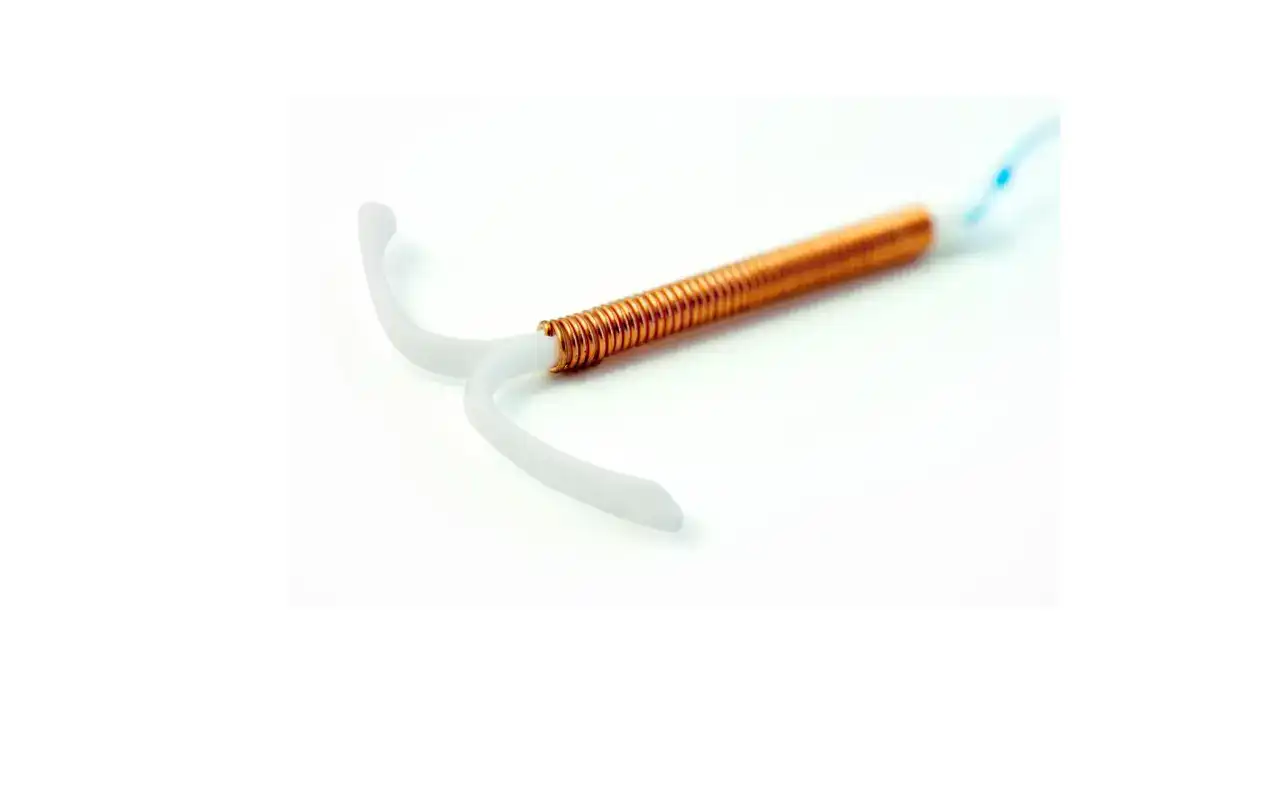Only for Licensed Professionals
Only for Licensed Professionals

Mirena IUD Neurological Side Effects
David Fuller
Last Updated On: September 10, 2024
Intrauterine devices (IUDs) are widely recognized as one of the most effective forms of birth control, offering long-term contraception with over 99% success rates. However, like all medical treatments, IUDs can come with side effects that vary in severity, making it important for prospective users to be aware of the potential risks.
Mirena, a popular hormonal IUD, has been associated with neurological side effects, including headaches, migraines, and other less common symptoms. These side effects underscore the need for patients to be well-informed about the specific risks linked to Mirena.
This article will examine the neurological side effects of the Mirena IUD, including their prevalence, underlying causes, and strategies for effective management.
Key Takeaways
- Mirena is a highly effective hormonal IUD used for long-term contraception and management of conditions such as heavy menstrual bleeding, endometriosis, and polycystic ovary syndrome (PCOS).
- While Mirena is generally well-tolerated, it has been associated with neurological side effects such as headaches, migraines, mood changes, and, in rare cases, serious conditions like pseudotumor cerebri.
- Healthcare providers should discuss the potential neurological side effects of Mirena with patients and consider individual risk factors when advising on contraceptive options.
- The hormonal effects of Mirena, particularly the release of levonorgestrel, are believed to be the primary mechanism behind its neurological side effects.
About: Operating since 2016, Med Supply Solutions is known for being one of the industry’s top and trusted suppliers of cosmetic and viscosupplementation products. If you’re looking to buy Mirena online, contact our sales department for more information.
What is the Mirena IUD?
Mirena is a small, T-shaped intrauterine device (IUD) inserted into the uterus to prevent pregnancy. It releases levonorgestrel, a hormone that thickens cervical mucus to block sperm and thins the uterine lining, making it difficult for an egg to implant. This mechanism provides a highly effective form of birth control, lasting up to five years.

In addition to preventing pregnancy, Mirena is commonly used to treat conditions such as heavy menstrual bleeding, endometriosis, and polycystic ovary syndrome (PCOS). Its hormone release helps regulate menstrual cycles and reduce pain associated with these conditions, offering relief beyond contraception.
Common Uses of the Mirena IUD

- Heavy Periods: Mirena significantly reduces heavy menstrual bleeding, often benefiting women with conditions like endometriosis and PCOS.
- Management of Menstrual Cycles: It helps regulate cycles, offering relief from irregular or painful periods.
- Long-Term Contraception: Mirena is an ideal choice for those seeking a reliable, long-lasting birth control method without daily maintenance.

Reported Neurological Side Effects
The Mirena IUD, while effective for contraception and managing menstrual conditions, has been associated with several neurological side effects. Commonly reported issues include headaches, migraines, mood changes, and, in rare cases, more severe conditions like pseudotumor cerebri.

- Headaches and Migraines: Headaches and migraines are frequently reported neurological side effects among Mirena users. Clinical studies indicate that a significant number of patients experience these symptoms, ranging from mild to persistent, often accompanied by dizziness. Continuous monitoring by healthcare providers is crucial for managing these symptoms, especially in long-term users.
- Mood Changes and Emotional Disturbances: Some Mirena users report mood changes and emotional disturbances, such as irritability, anxiety, or depression. Although less common, these side effects can impact quality of life. It is important for healthcare providers to discuss these potential effects with patients and offer guidance and support when needed.
- Rare but Serious Conditions like Pseudotumor Cerebri: Pseudotumor cerebri, a condition characterized by increased intracranial pressure, is a rare but serious neurological side effect associated with the Mirena IUD. Symptoms include severe headaches, ringing in the ears (tinnitus), and neck pain. Due to its rarity, awareness and early recognition by healthcare professionals are vital for timely intervention.
While these side effects are not widespread, they highlight the need for thorough consultation with a healthcare provider to assess risks and develop appropriate management strategies for those considering or currently using Mirena.
Incidence and Risk Factors
While uncommon, neurological side effects related to the Mirena IUD are significant considerations for users. Risk factors that may increase the likelihood of experiencing these side effects include a personal or family history of migraines, mood disorders, or other neurological conditions. Comparing Mirena vs. Kyleena, some users may find that one IUD triggers fewer neurological symptoms than the other, depending on their medical history and individual sensitivities.
Healthcare providers should consider these potential risks when advising patients on their contraceptive options. Understanding the incidence of neurological side effects and the factors that heighten these risks is essential for managing expectations and providing tailored recommendations for patients considering the Mirena IUD.
Possible Mechanisms
The Mirena IUD can impact the central nervous system primarily through its hormonal effects, which may contribute to neurological side effects. Commonly reported symptoms include headaches and migraines, often linked to hormonal fluctuations caused by the release of levonorgestrel. These fluctuations can also influence mood, leading to emotional disturbances such as low mood, anxiety, or depression.
In rare cases, the hormonal influence of the Mirena IUD has been associated with more severe neurological conditions like pseudotumor cerebri, a disorder characterized by increased intracranial pressure. This condition can result in severe headaches, ringing in the ears, and pain in the neck and shoulders, mirroring symptoms of increased brain pressure. These potential side effects underline the importance of close monitoring, especially for users with pre-existing neurological or hormonal sensitivities.
Healthcare providers should be aware of these risks when discussing contraceptive options, emphasizing the need for individualized patient care. Understanding how hormonal changes from the Mirena IUD may affect neurological function is crucial for ensuring that patients are well-informed about their potential impact. Patients experiencing unusual neurological symptoms should be encouraged to seek prompt medical evaluation.
Seeking Medical Advice
If you experience neurological symptoms such as headaches, migraines, mood changes, or other unusual sensations after Mirena IUD insertion, it is crucial to consult a healthcare professional. Seek medical advice immediately if these symptoms are severe, persistent, or significantly affect your daily life. Early intervention can help manage side effects and prevent complications.
Steps to take include documenting your symptoms, noting when they occur, their severity, and any triggers. This information can help your healthcare provider better assess your situation. Avoid self-medicating or discontinuing Mirena without professional guidance, as this could exacerbate your symptoms.
Consulting a healthcare provider ensures that your concerns are thoroughly evaluated and managed. They can offer tailored advice, adjust your treatment plan if necessary, and provide support to alleviate symptoms.
Managing Mirena Neurological Symptoms
Managing neurological symptoms associated with the Mirena IUD involves a combination of lifestyle adjustments, coping strategies, and medical interventions tailored to the individual.
- Headache Management: To manage headaches and migraines, start by identifying triggers using a headache diary. Over-the-counter pain relievers may provide temporary relief, but persistent symptoms warrant a consultation with a healthcare provider. If headaches are severe, further evaluation and prescription medications might be necessary.
- Coping with Mood Changes: Regular exercise, mindfulness, and adequate sleep can significantly improve mood and emotional well-being. Support from family, friends, or therapy can also be beneficial. Maintaining a balanced diet and reducing stress levels are crucial self-care practices to help manage emotional disturbances linked to the Mirena IUD.
- Addressing Serious Neurological Side Effects: For more severe conditions, such as pseudotumor cerebri, healthcare providers may prescribe specific medications or recommend lifestyle adjustments to reduce brain pressure. In extreme cases, surgical intervention may be required to alleviate symptoms. Early consultation and ongoing monitoring are essential to prevent complications.
- Consultation and Monitoring: Regular check-ups with healthcare professionals are crucial for monitoring symptoms and adjusting treatment plans. Promptly seeking medical advice ensures effective management of neurological side effects and helps maintain overall health.
Conclusion
The Mirena IUD is a reliable contraceptive option but can cause neurological side effects in some users. Being aware of these potential effects and knowing when to seek medical advice ensures you make informed choices. If you experience any neurological symptoms while using Mirena, consult a healthcare professional promptly for proper evaluation and support.
FAQs
1. What are the potential neurological side effects of Mirena IUD?
Potential neurological side effects of the Mirena IUD include headaches, migraines, dizziness, and in rare cases, conditions like pseudotumor cerebri (PTC) or idiopathic intracranial hypertension (IIH), which can cause symptoms such as vision changes and tinnitus.
2. Are neurological side effects from Mirena serious?
While most neurological side effects from Mirena, such as headaches and dizziness, are generally mild, rare conditions like pseudotumor cerebri (PTC) or idiopathic intracranial hypertension (IIH) can be more serious and require medical attention.
3. Can I use Mirena IUD and Plan B together?
Yes, it is safe to use Mirena IUD and Plan B together. Plan B, an emergency contraceptive, can be used as an additional precaution without interfering with the Mirena IUD’s effectiveness.
References
Mirena IUD side effects: Impact on mood, weight, and more. www.medicalnewstoday.com. Published April 22, 2021. https://www.medicalnewstoday.com/articles/birth-control-mirena-side-effects
Kumar K. What Are the Bad Side Effects of Mirena? MedicineNet. Published February 26, 2021. https://www.medicinenet.com/what_are_the_bad_side_effects_of_mirena/article.htm
Products
Cart
Log In
Newsletter
Subscribe for exclusive offers and updates on new arrivals
Share feedback at:
Working Hours
MON - SUN 9AM to 6PM EST
The Most Popular Brands
Med Supply Solutions
Support
Secure checkout is guaranteed with full adherence to PCI DSS payment standards.
Products listed here are guaranteed authentic and manufacturer-sourced.
Pay easily with trusted providers


*Google and Apple Pay are currently only available via a direct link provided by your account manager.
Copyright 2025. Med Supply Solutions